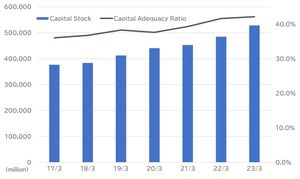Chappell Roan Makes History With Grammy Award Win and Bold Speech
Chappell Roan shines at the 2025 Grammy Awards, advocating for artists' rights.
At the recently held 67th Annual Grammy Awards, Chappell Roan captured the spotlight not only for her momentous win as Best New Artist but also for her fiercely delivered speech denouncing the exploitative practices of the music industry. The 26-year-old pop sensation, known for her chart-topping hit album The Rise and Fall of a Midwest Princess, embraced the iconic event as both celebration and platform for advocacy.
Stepping onto the red carpet shortly before the show, Roan stunned attendees by wearing a vintage Jean Paul Gaultier dress featuring elements from Edgar Degas’s celebrated painting, Dancer with a Bouquet, known for its artistic portrayal of ballet and beauty. The gown, first introduced as part of the designer’s Spring/Summer 2003 collection, showcased her unique flair for fashion and art history, echoing the colors and softness of Degas's masterpiece with its layers of canary yellow and eggshell blue.
Inside the glamorous venue, the atmosphere shifted as Roan caught everyone’s attention, not only through her mesmerizing presence but also with her poignant words. During her acceptance speech, she boldly confronted the music industry, stating, “I told myself if I ever won a Grammy and I got to stand up here in front of the most powerful people in music, I would demand...” illuminating the dire need for record labels to offer fair compensation and health care to artists.
Her statement was met with audible applause and cheers from the audience. "Labels, we got you but do you got us?" she questioned, drawing on her own experiences of betrayal after being dropped by her label at 17. This heartfelt reflection outlined not only her personal struggles but also spotlighted broader issues of artist exploitation, echoing the sentiments of countless others drowning under similar pressures. "It was devastating to feel so committed to my art and feel so betrayed by the system and dehumanized," Roan recounted. The sincerity and urgency of her message stirred both admiration and support.
Social media erupted with praise for Roan’s courage and authenticity right after her powerful speech. One fan tweeted, “Chappell Roan wins and calls out the entire system... I love her so much and how she refuses to conform to the industry. No one does it like her.” Another added, “A lesbian drag queen just won best new artist... Chappell Roan, the woman you are!” This flood of positive reactions showcased the overwhelming support she has garnered from her fanbase and fellow artists alike.
Roan’s ascent to fame has been as remarkable as her Grammy moment. Initially, she faced industry obstacles, oscillated between genres, and crafted her distinct sound characterized by upbeat dance music and sapphic lyrics. Her face-off with the industry highlighted her refusal to succumb to traditional pathways toward success, allowing her queerness and creativity to flourish instead. From the heartfelt melancholy of her earlier work to her artistic reinvention, Roan now celebrates her identity proudly through catchy hits like “Good Luck, Babe!” and “Hot To Go!”
The singer's strong roots and the drive to effect change resonate with those who follow her. With significant momentum behind her music career—boasting over 40 million monthly Spotify listeners—Roan has set herself apart not merely as an artist but as a movement. Advocates for equality and fairness now look up to her as she unapologetically navigates fame on her own terms.
Chappell Roan's distinct aesthetic and enchanting stage presence might conjure comparisons to pop megastars, yet her fundamental approach starkly contrasts with them. Where one might view the fame machine as sacrosanct, Roan has approached it with both authenticity and defiance. Her refusal to cater to the industry's expectations epitomizes the freedom and agency she possesses within the creative space.
Roan's Grammy night marks not just her triumph but also the resounding hope for change within the music industry. She symbolizes the voice of the new generation demanding accountability and systemic reform. Amidst shifting tides, she is determined to be remembered as more than just another award winner, but as someone who stood resolute on principles, advocating relentlessly for the recognition of artists.
Her speech was not just timely but necessary, considering the pervasive issues of exploitation artists face across creative industries. With Chappell Roan leading the charge, there’s renewed hope for artists yearning to reshape the narrative of their careers. Her Grammy win is just the beginning.
Roan's landmark achievement echoes the power of advocacy; she not only thrives under the industry's spotlight but also leverages it for necessary dialogue. With unparalleled resilience and artistry, she steps forward, ready to continue fighting for what is right—an artist not merely surviving, but thriving.



